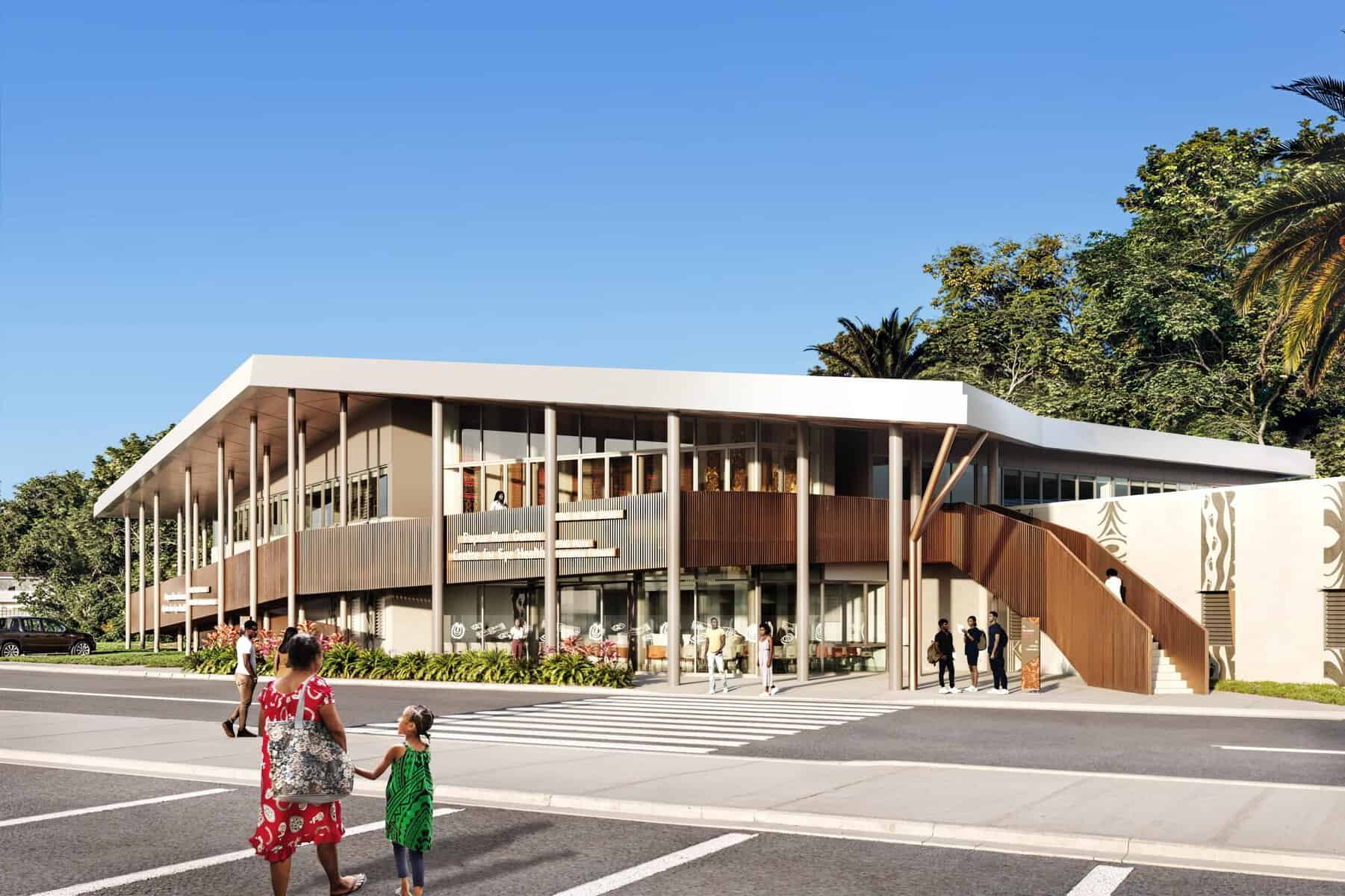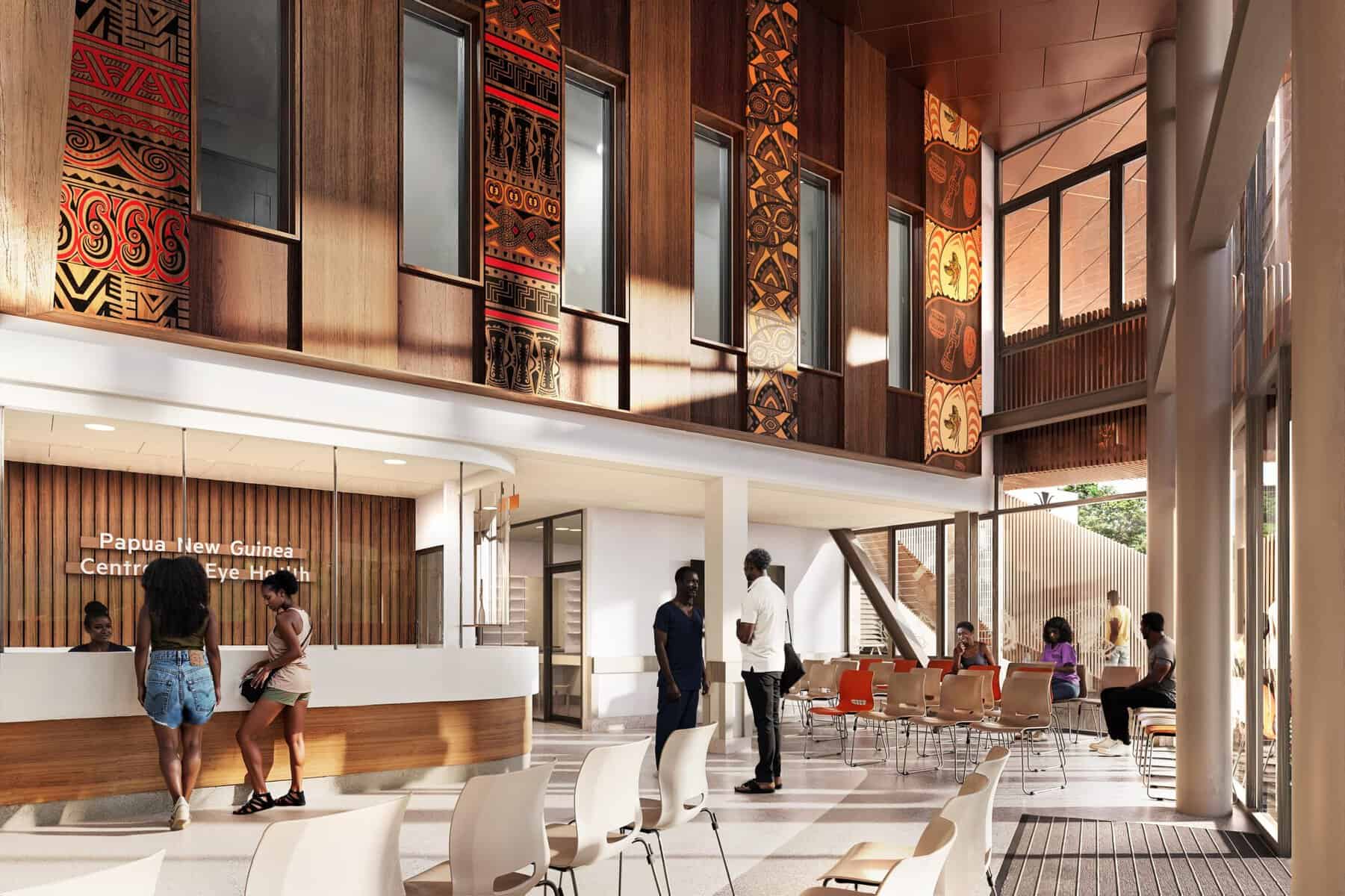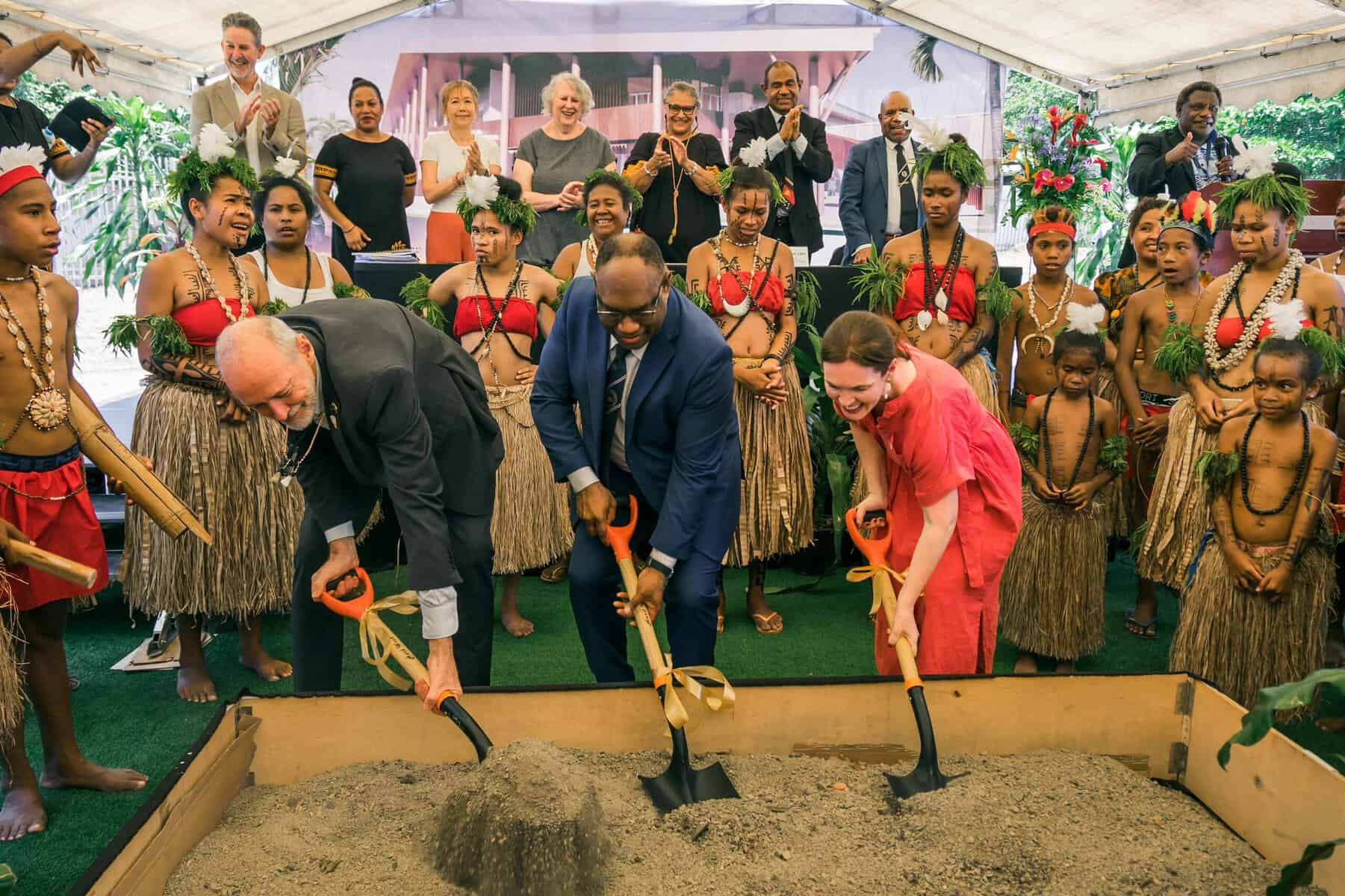Representatives from the Governments of Papua New Guinea, New Zealand and Australia, and other dignitaries gathered on Thursday 7 November for a Groundbreaking Ceremony to celebrate and kick off the building of the Centre for Eye Health in Port Moresby, Papua New Guinea.
The purpose-built eye care training and service centre aims to tackle the pressing issue of avoidable blindness and vision impairment by supporting specialist eye care training for eye doctors, eye nurses, and optometrists.
The groundbreaking event was a significant milestone for the PNG eye sector, especially The Fred Hollows Foundation NZ and its partners, who have been working in PNG for over 20 years supporting the strengthening of eye health care systems.
Dr Audrey Aumua, Chief Executive Officer of The Fred Hollows Foundation NZ, stressed the impact the Centre will have for Papua New Guineans in need.
“In recent years, research and data have made it clear that more eye care support is required in PNG. With one of the highest rates of avoidable blindness and vision impairment, and some of the most challenging development indicators in the world, it is vital that investment in PNG’s health system is significantly increased,” she said.
“The Foundation is responding to this, and to requests from our partners, by increasing our focus on supporting the training of more eye doctors and eye nurses. The establishment of the Centre for Eye Health moves us closer to addressing this significant need and demonstrates a shared commitment to strengthening PNG’s eye health care system and ensuring its long-term sustainability.”
In PNG, it’s estimated that 5.6 per cent of the population aged over 50 years old are living with blindness, and a further 21.1 per cent of people are experiencing vision impairment. 1
Ninety per cent of this blindness is due to cataract and therefore preventable and treatable with cost-effective interventions, providing a significant opportunity for impact.
Professor Nakapi Tefuarani, Executive Dean of the University of Papua New Guinea School of Medical and Health Sciences, said despite the high need in PNG, only 7 provinces out of 22 currently have a resident eye doctor.
“I’m very happy that with this new development, we are responding to this need by increasing our focus and investment on supporting the training of more eye doctors. This is key to the sustainability of eye health care systems in PNG, since we have found that training local eye care specialists, who will go on to deliver services in their own communities, is the best way to secure long term improvements in eye health,” he said.
1 Lee, Ling & D’Esposito, Fabrizio et al.(2018). Rapid assessment of avoidable blindness in Papua New Guinea: A nationwide survey. British Journal of Ophthalmology. This is a study of the 50+ population.
“The country’s aim is to have at least one eye doctor and a team of eye nurses for every province, resulting in a significant expansion of access to eye health care services for communities across PNG.”
As well as expanding training for eye health professionals, the Centre for Eye Health will provide specialised eye care services, including the country’s first dedicated diabetic retinopathy (DR) clinic and paediatric ophthalmology services. It will be a hub for eye care workforce training and support, eye care service delivery and outreach, research, innovation, coordination and leadership.
Hon. Elias Kapavore, PNG Minister for Health, explained how the Centre will be central to helping raise the standard of eye health care services in PNG.
“By increasing the eye care workforce and working in partnership with our National Department of Health and provincial health authorities to meet their eye care workforce needs, we aim to reduce barriers to accessing eye care services countrywide, supporting services to the most marginalised and remote communities,” he said.
During the ceremony it was announced that the Australian Government would provide $3.1 million of funding towards the $33 million project, adding to an earlier NZ Government commitment of $18.9 million.
In addition to this, the Centre is being funded with support from the Latter-day Saints Charities who have committed $5.5 million, and a significant investment by The Fred Hollows Foundation of approximately $8.5 million.
Minister Kapavore expressed his gratitude for the generous contributions made to this important project.
“This investment in eye health is an investment into PNG’s future. It is transformative, helping people to unlock their potential in education and employment which contributes to workforce productivity, economic development, prosperity, and stability.”
The selection of the construction contractor for the upcoming build was also announced during the ceremony, with Minpac Construction having been appointed by The Foundation.
“Minpac will be working closely with our project management team that we’ve engaged to ensure that all health facilities at Port Moresby General Hospital meet the quality standards,” Dr Paki Molumi, Chief Executive Officer of Port Moresby General Hospital said.
“Minpac have recently constructed the Metoreia Health Centre, and we look forward to an equally impressive build occurring here for the Centre for Eye Health.
“The Centre will make an important contribution to our eye health services in PNG and form an important part of the development of the Port Moresby General Hospital master plan which aims to improve and strengthen our infrastructure and services moving forward.”
Site preparation and enabling works will commence this month and construction of the Centre will progress through to May 2026.
The two-story facility, designed by Bossley Architects under guidance from PNG’s eye care leadership, will include reception and administration areas, well-equipped treatment and surgical facilities, and educational, training and management facilities. The upper floor will be dedicated to training and the ground floor to service provision. The Centre’s climate-proofing and energy-efficient design ensures it will serve the community for generations.
The Centre is a key element of PNG’s National Eye Health Strategic Plan (2025 to 2029) and will be owned by the PNG Government through its National Department of Health and will be jointly operated through the Port Moresby General Hospital and University of Papua New Guinea School of Medicine and Health Sciences. It will be supported by member organisations of the PNG National Prevention of Blindness Committee, including The Fred Hollows Foundation NZ.


ENDS
Media information: For interview requests or more information, please contact: Meghan Swart, Community Engagement & Communications Specialist, mswart@hollows.nz | +64 21 781 082 or Katie Moore, Communications Manager, kmoore@hollows.nz | +64 21 528 102
